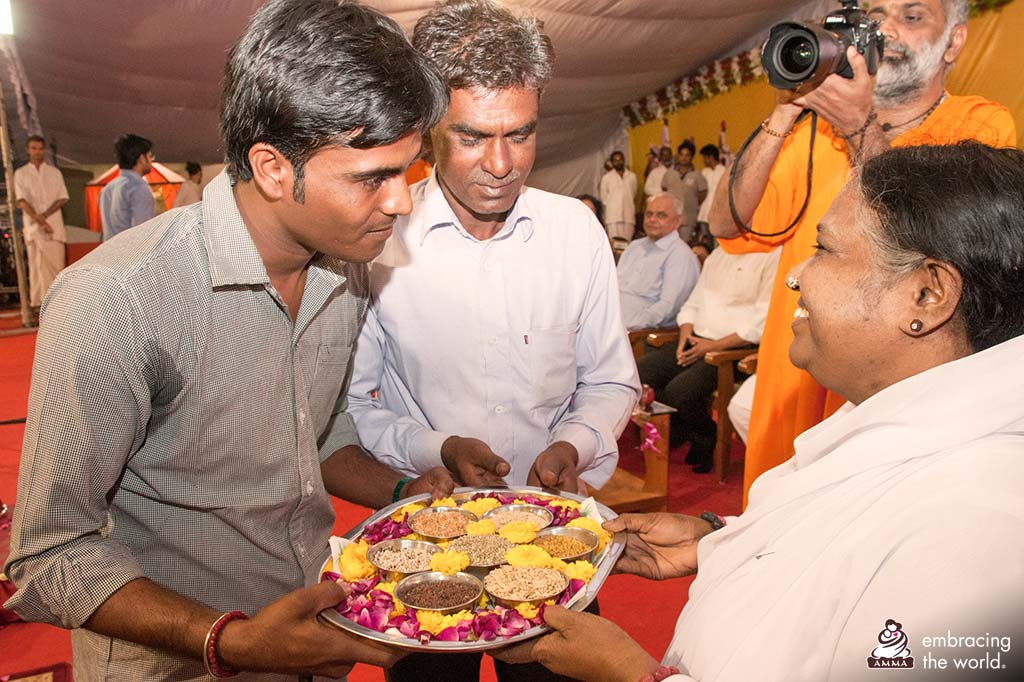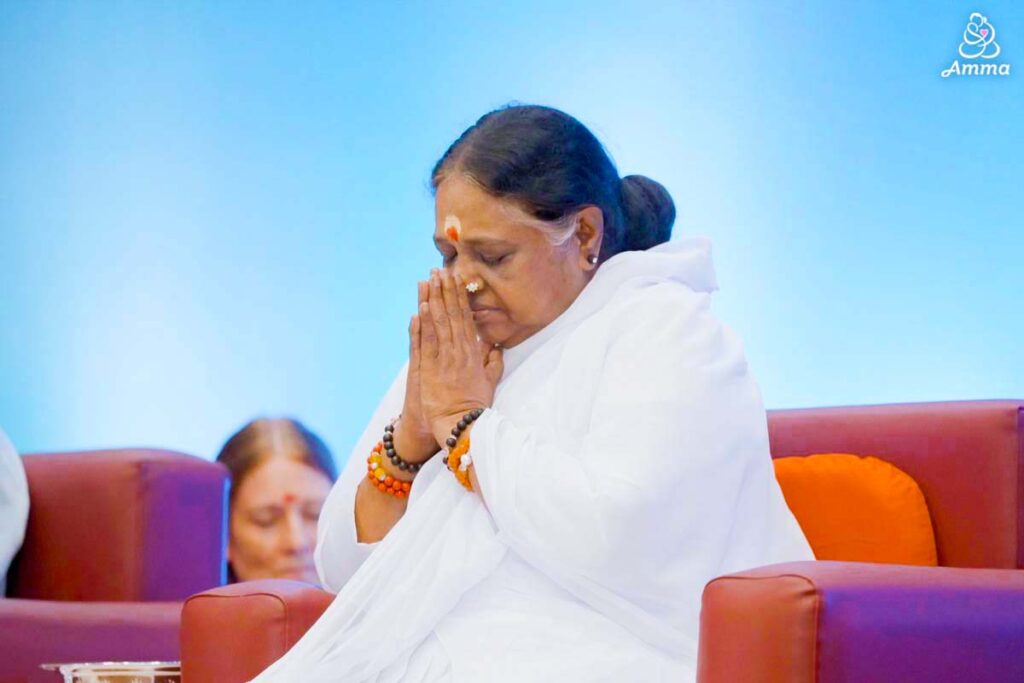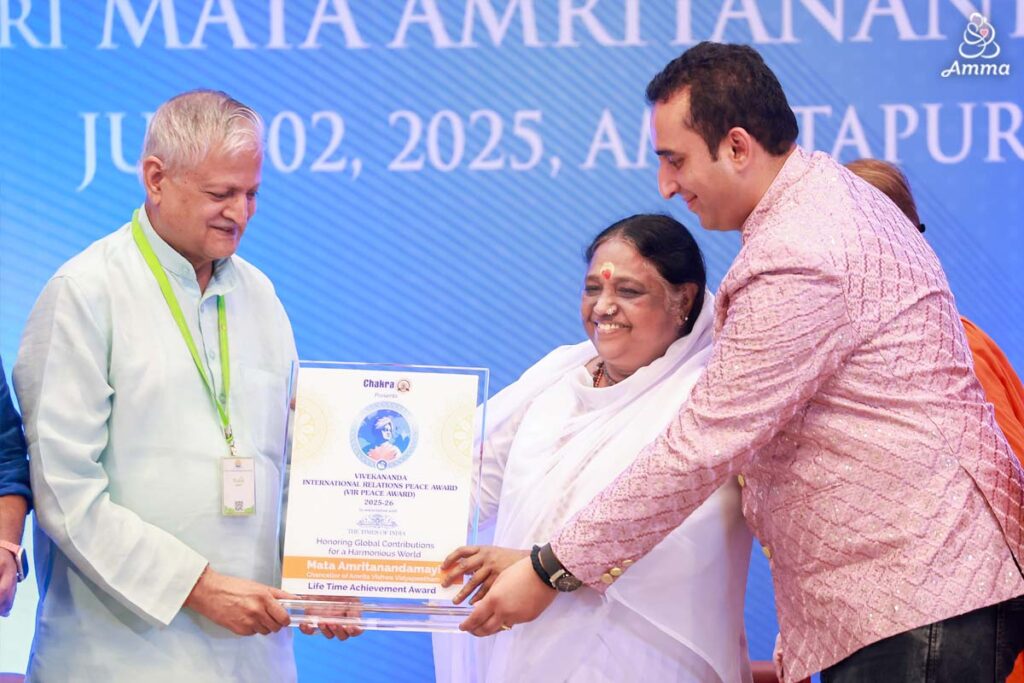Harirampura is a village in Rajasthan of about 500 people where most of them live below the poverty line. Amrita SeRVe began work there in 2013 when there was no electricity, new-born children did not receive vaccinations, many children missed school because they had to take buffalo to graze, and women had to collect water from wells quite a distance away.
After five years of work with villagers, now every child attends school, all new-born children receive vaccinations, and water is available in every home. With this support, some farmers have also decided to take up the challenge of organic farming.
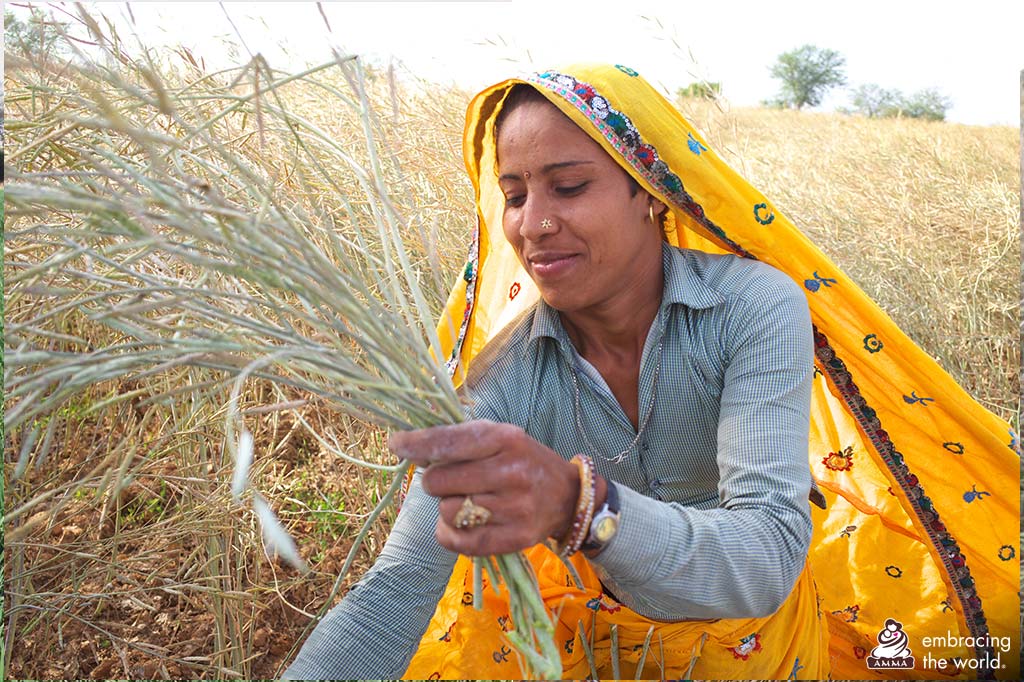
“We should cultivate more organic crops. My grandfather is still alive and he says that they never used chemical fertilizers while doing farming. That’s why at 97, he is still strong and healthy,” explains Rajesh Meena.
Rajesh, 42, is Amrita SeRVe’s village coordinator in Harirampura. He is also a farmer who comes from a family long grounded in that tradition.
Over the last 50 years, the use of chemical fertilizers and pesticides has become part of the farming industry around the world. But now the ill effects of that practice in the forms of sickness and pollution are becoming all too apparent, both on farmers and consumers.
Three years ago, Rajesh decided to become the first in his village to make the transition back to organic farming. Motivated by his efforts, eight other farm families in Harirampura followed suit. Together, they have formed the area’s first farmers’ club. When farmers with small land holdings form a collective so that they can share land work and the costs of equipment, everyone benefits.
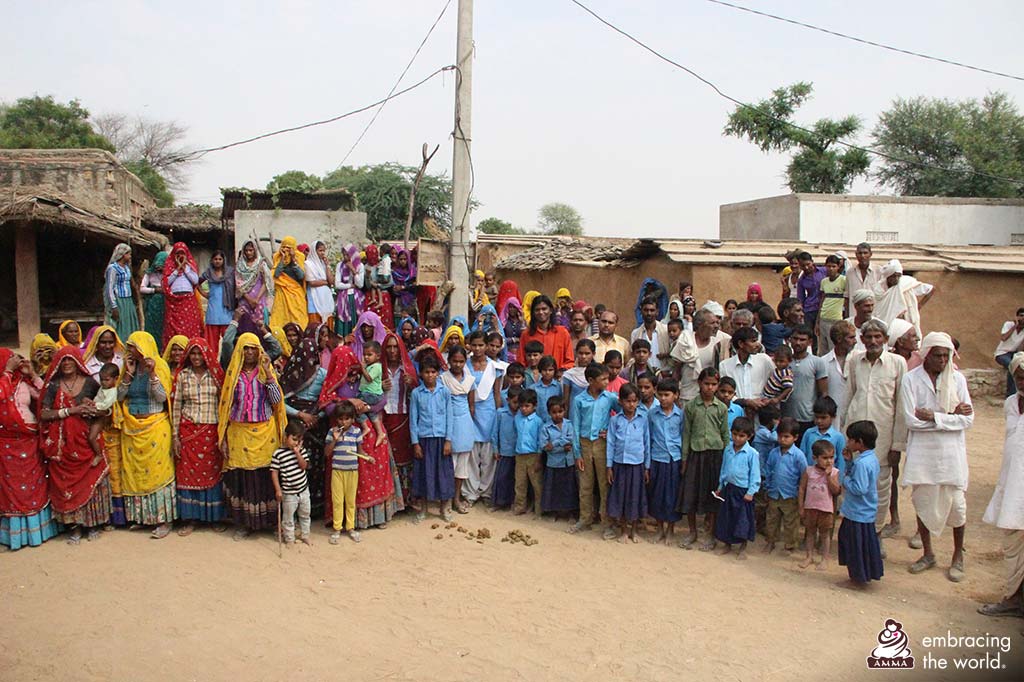
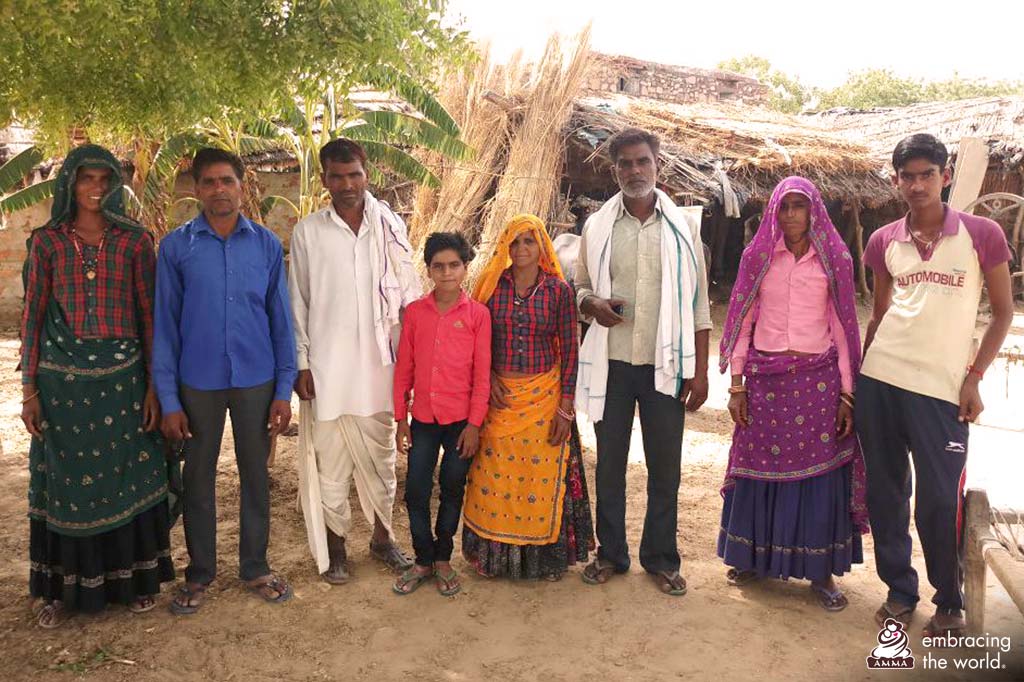
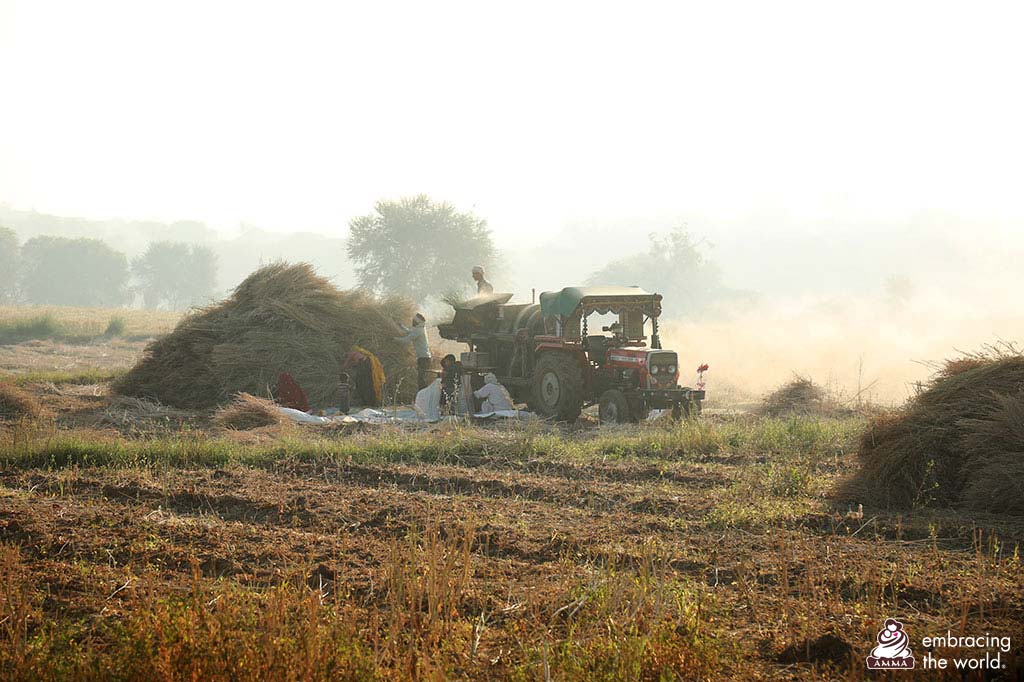
Farmers here typically grow two crops a year, one during the rainy season and the other during the winter months. Sesame and pearl millet are planted before the rains. Mustard and wheat are winter crops. Mustard is planted in October and harvested by March. Wheat, which is planted around mid-November, is harvested in April.
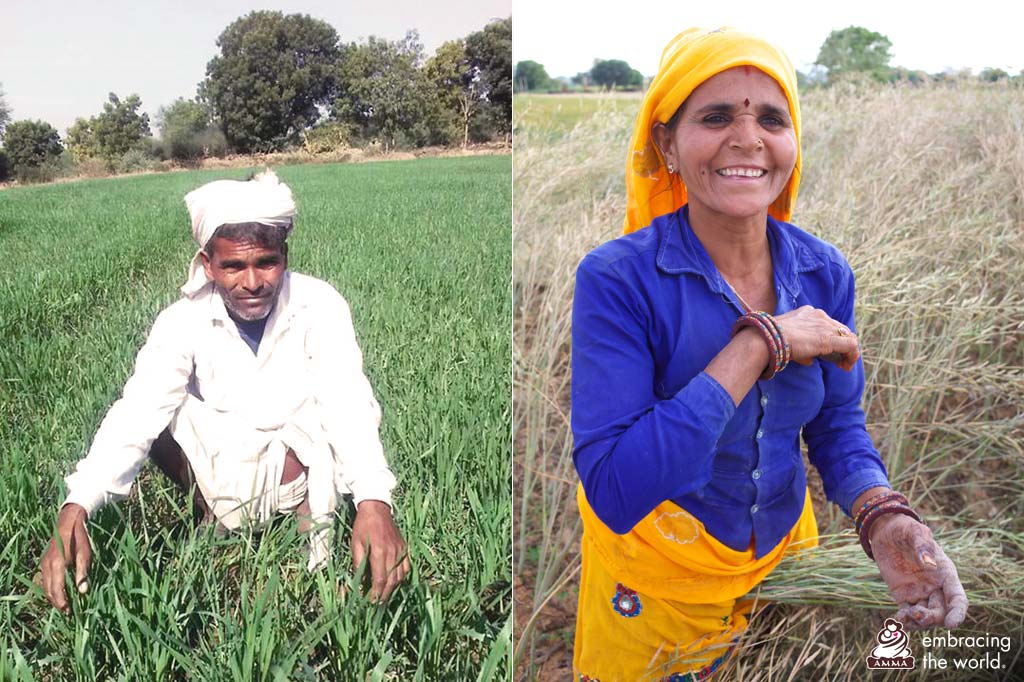
This March, some of the farm families from Harirampura came to New Delhi to receive Amma’s darshan at the program there. They had already begun to harvest their organic mustard crop and so presented some to Amma. When people witnessed these efforts to do chemical-free agriculture, they wanted to show their support.
“I decided to buy wheat from these farmers and store it for my use year-long,” shares Poonam, who lives in Gurgaon in New Delhi. “Although this means that I have to make a little more effort in taking the wheat to the flour mill every few weeks, to get the wheat flour, I have the satisfaction of knowing that my family is eating healthy food. Plus, we are directly supporting Amma’s farmers.”
In April, 2000 kg of organic wheat and wheat flour from Harirampura were brought to Amma’s ashram in Delhi for direct sales. Such farmers’ markets are beginning in many cities in India, as urban consumers want to ensure that what they are eating is healthy and also wish to support the farmers who grow their food.
When Rajesh was using urea (a chemical fertilizer), he was harvesting 7000 kg of wheat from one acre of land. Now, he harvests only 4000 kg. But he is committed to learning how to enrich his soils using compost teas and possibly vermicompost to get a better yield. Even though the yields are lower initially in organic farming, expenses are also lower as chemicals do not need to be purchased.
Moreover, this year by selling directly, the farmers club was able to get an average ¢50 (₹30) per kg, instead of the ¢25 cents (₹15) per kg that they would have received otherwise. Usually, small-scale farmers sell to a middle man who then delivers to the larger market.
“Grandfather often tells us that fertilized crops should be removed and we should once more return to the organic way of farming”, explains Rajesh. “But our village is poor, so people have to earn a livelihood somehow.”
Harirampura is home to families belonging to the tribal caste of Meena. Rajesh lives with his father, mother, grandfather, wife and three children. His children are enrolled in a school in the nearby town of Gangapur. School expenses average $100 (₹7,000) per month. His average monthly income from farming is a meager $150 (₹10,000) per month, with which he has to take care of his large family.
So for now, Rajesh’s farmers’ club will divide their crops between organic and regular. They cannot yet commit to 100% organic, as the transition from the system they already know will take time. But change has started. Many scientists maintain that it is the small farmers in developing countries who take up organic agriculture who can be a vital key to our food security in the future.


